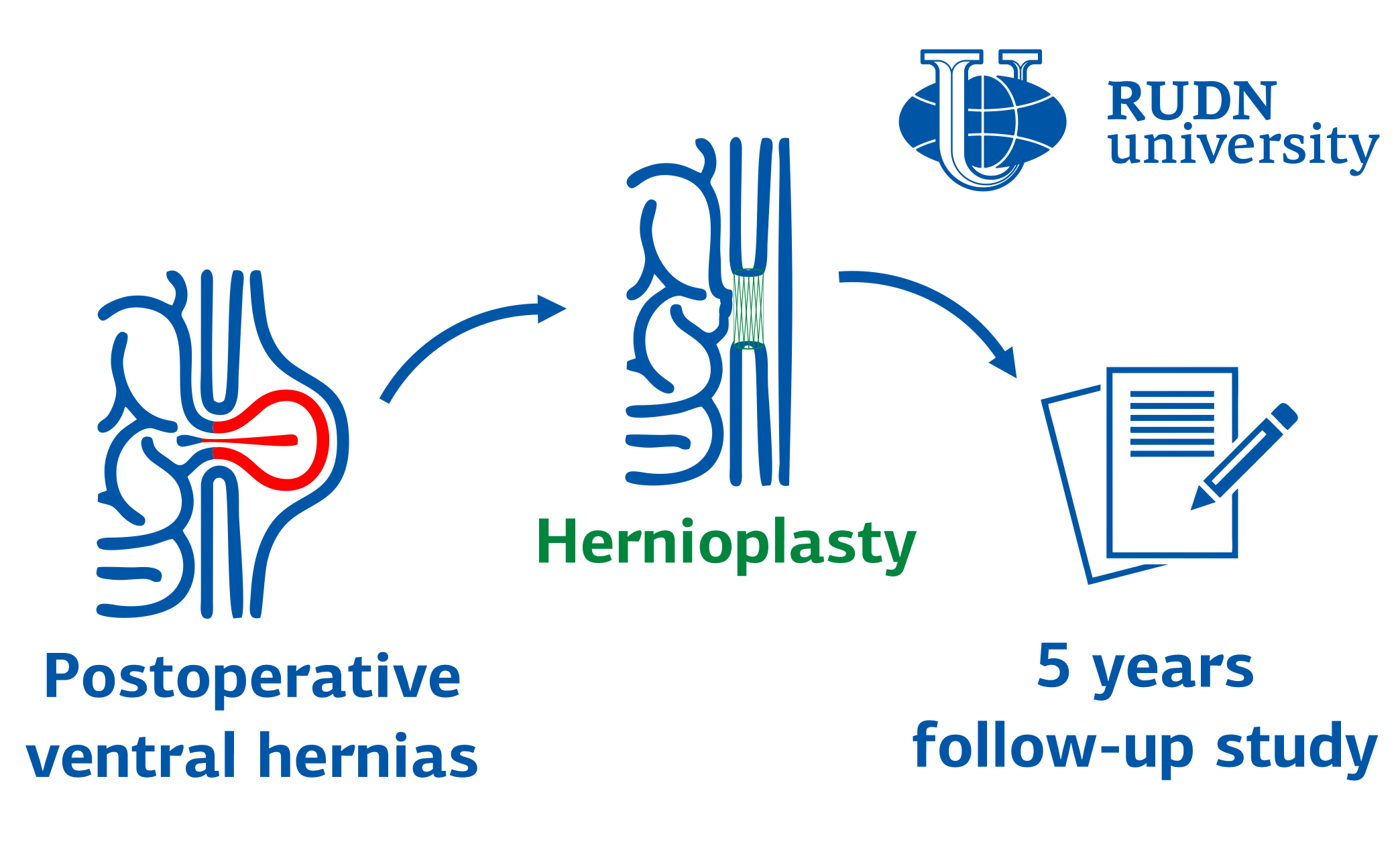RUDN University doctors evaluated the effectiveness of hernia treatment with a mesh endoprosthesis
Ventral hernias, or hernias of the abdominal wall, are a very common type of hernia. Most often they are formed after surgery. If the postoperative scar healed incorrectly, for example, due to infection, then a protrusion of the anterior abdominal wall develops. In the early stages, this is noticeable only when lifting weights, coughing. In the later stages, it is also visible externally, it causes pain, especially with fast walking and sudden movements. In some cases, postoperative ventral hernia can reach a huge size. Recently, mesh endoprostheses, or meshes, have been used to treat postoperative ventral hernias. During the operation — hernioplasty — the doctor sets the abdominal organs in place, and an implant in the form of a mesh is installed in the area of the hernia “gate”. Such nets take root well, do not interfere with the work of organs and reduce the recovery period. Physicians of RUDN Unviersit, under the guidance of professor Andrei Protasov, MD, head of the Operative surgery and clinical anatomy by I.D. Kirpatovsky followed the recovery of patients after such an operation for five years.
“Operations for hernias of the anterior abdominal wall are the second place by the number of surgical operations performed. Only perations for acute appendicitis get ahead of them. Our goal was to conduct a retrospective analysis of data over a five-year period of time and evaluate the results of surgeries,” Serdar Kuliev, surgeon, associate professor of the Department of Operative Surgery and Clinical Anatomy, RUDN University.
Doctors conducted a comparative study and assessed the level of complications and quality of life of patients with postoperative ventral hernias after hernioplasty. A total of 96 patients participated in the study. The patients were followed up for five years after the hernioplasty using mesh endoprostheses. Complications were assessed using the Clavien-Dindo scale, a standard classification of surgical complications. The doctors also assessed the quality of life using the EuraHS QoL questionnaire developed by the European Society of Herniology.
Wound complications were found in 11.4% of patients, general complications 4.2%. Only 1% had a recurrent hernia. Most patients (more than 70%) felt a significant improvement. Pain decreased, physical activity and satisfaction with appearance increased. This happened already in three month after the operation.
“Our results show that during the five-year period after hernioplasty with a mesh endoprosthesis, there is a low percentage of wound complications and relapses. The quality of life of patients is also significantly improved,” Anna Kulakova, surgeon, assistant of the Department of Operative Surgery and Clinical Anatomy, RUDN University.
The results are presented in the British Journal of Surgery.
The RUDN Prize for Scientific Achievements in Chemistry for 2025, with a monetary award of 2 million rubles, was awarded to Alexander Davidovich Dilman, Deputy Director of the N.D. Zelinsky Institute of Organic Chemistry of the Russian Academy of Sciences. The researcher received the award during the celebration marking RUDN’s 66th anniversary.
Sergey Ivanov, a scholar from St. Petersburg, has been named the first winner of RUDN University’s International Prize for Scientific Achievements in Mathematics, worth 5 million rubles.
Products derived from microalgae represent a cutting-edge development in the field of bioeconomy. The potential of this biological resource was discussed at the international research seminar “Foundations for a Green Sustainable Energy”, part of the BRICS Network University’s thematic group on “Energy”. The event was organized by the Institute of Ecology at RUDN University.
